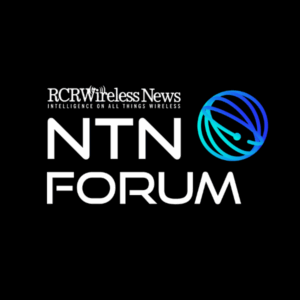The wireless industry’s shift from focusing on growth at any expense to an emphasis on growing profitably has been reinforced recently with a number of operators deciding it will take different leadership to guide them through what many expect to be a trying time for wireless carriers.
Last week witnessed the latest executive change as AT&T Wireless Services Inc. replaced President Mohan Gyani with Michael Keith, who previously ran AT&T Wireless TeleCorp following the carrier’s acquisition of its former affiliate, TeleCorp PCS Inc., earlier this year.
AT&T Wireless said Gyani, who has been president at the company since March 2000, is expected to work closely with Keith through the remainder of the year to ensure a smooth transition and will continue to represent AT&T Wireless in industry forums and on certain boards.
While AT&T Wireless had nothing but glowing praise for its deposed leader, company Chairman and Chief Executive Officer John Zeglis was quick to point out the operational qualities Keith is expected to bring to the company.
“Michael really understands the wireless business having just completed the successful integration of our TeleCorp business, whose performance he improved significantly,” Zeglis said. “He has extensive leadership experience and a strong track record in sales and operations in all areas of the telecommunications business. Combine that with his analytical skills, hands-on approach and relentless focus on results and we’ve got the right person at the right time to lead our mobility operations.”
Zeglis’ words were near carbon copies of comments from fellow executives at Sprint PCS, which replaced President Charles Levine with Len Lauer; at Cingular Wireless L.L.C., which swapped former President and CEO Stephen Carter with Stan Sigman; and to a lesser extent at Nextel Communications Inc., where James Mooney left as chief operating officer after 18 months.
“It’s a changing of the guard,” said Roger Entner, program manager of wireless/mobile services at Yankee Group. “The overall philosophy has changed.”
Entner explained that carriers are no longer focusing on the same operating metrics as when the industry had huge growth potential and instead are looking for someone who can continue to grow the operation, but in a much more competitive environment.
Levine’s departure from Sprint PCS came shortly after the carrier reported a loss of customers during the third quarter that resulted from troubles with its Clear Pay program, which expanded under Levine’s watch. That program helped Sprint PCS lead the industry in customer growth, but at the expense of lower-quality customers and increased churn.
Carter suffered a similar fate at Cingular, where he led the company’s launch after the merger of BellSouth Corp. and SBC Communications Inc.’s wireless business only to see the carrier also report negative customer additions during the third quarter.
Mooney’s departure from Nextel is slightly different as the carrier posted strong results throughout the year, even in the face of increasing price competition. Some analysts said Mooney simply got lost under the shadow of Nextel’s president and CEO, Tim Donahue, as well as the company’s strong focus on its financial structure, which was headed up by Chief Financial Officer Paul Saleh.
Unlike Sprint PCS under Levine and Cingular under Carter, AT&T Wireless continued to post positive, if not spectacular, financial results under Gyani. The carrier consistently has added customers, despite a hit from WorldCom Wireless Inc. pulling out of the reseller business this year, posted positive financial results and is the largest independent wireless operator in the country.
“It takes a different skill set to run an entrepreneurial company like the carriers have run in the past than to run a carrier in the current environment,” said Iain Gillott, principal analyst at iGillottResearch. “The industry needs operational people to get in there. This is a $100 billion industry with 50-percent penetration. It isn’t going to get to 75-percent penetration overnight. It’s going to get even more competitive and it will take different leadership to get there.”
While the changes in leadership may appease worried investors who have seen their investments in the wireless industry reduced to pennies on the dollar, industry analysts do not expect changes to occur overnight.
“The problems are fundamental,” Entner said. “It might have taken 6 months to turn things around at Sprint with Charles Levine, and it will probably take 180 days to do it without him.”
While a number of carriers struggle to find the right leadership, other executives at some of the nation’s larger carriers should not have to worry about any change-of-address forms in the near future. Dennis Strigl’s job at Verizon Wireless Inc. is most likely safe as the company has scale and continues to post good results. At T-Mobile USA Inc., John Stanton is as much the image of the company as Catherine Zeta-Jones. And at Alltel Corp., the Ford family’s majority ownership should keep them in control.






